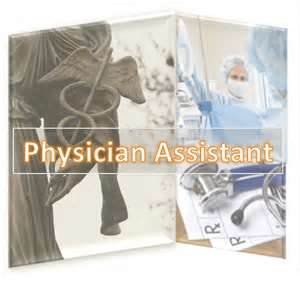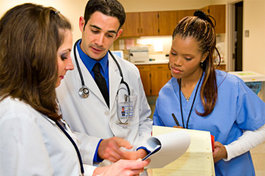- Prices/Payment
- Standard Service US$199.00
- VIP/Rush Service US$299.00
- Statement of Purpose Help
- Dr Robert Edinger, Personal Statement of Purpose Specialist
- Editing/Writing Service
- Mission
- Guarantee/Privacy Policy
- Client Testimony
- Autobiographical
- Disadvantaged Status
- Diversity
- KSA
- Letters of Recommendation
- Resume /CV
- Interview!
Samples of My Work for Physician Assistant Studies
- Masters PA, Spanish Translator, Sports Medicine
- Masters PA Studies, At-Risk Communities
- PA Master’s Degree Applicant, Chiropractor USA
- PA, Student Pilot, Dean’s List, Spanish
- PA Masters Polish Speaker, Healthy Living
- MS Physician Assistant, Home Health
- Masters PA Physician Assistant, ER
- PA MS Masters Physician Assistant, Adult Daycare
Statements of Excellence for Admission to Physician Assistant Masters Programs

I help as many people as I can in the area of Physician Assistant Studies because I find these applicants to be kind, compassionate people with interesting stories and noble ambitions. I especially enjoy drafting PA statements of purpose for people whose story excites me, applicants that I feel strongly are in a unique position to give something of importance to their respective professions.

The Humanitarian Side of Physician Assistant Studies
Thousands of physician assistants make their vacations humanitarian, but few were expecting the experience they had the first time they set foot in the developing world and began treating people from another culture who speak a different language with limited resources! Here are some core guidelines for disaster response to satisfy that gifted, orderly mind of yours and ensure you have a delightfully effective trip.
The Physician Assistant in Disaster Response—Core Guidelines
Monumental disasters shine a bright light on the strengths and weaknesses of disaster response. One of the biggest challenges is coordinating human and material resources as multiple groups launch relief efforts in response to a man-made or natural disaster.
One of the simplest things a physician assistant (PA) can do as an individual to lessen the burden is to resist the urge to simply show up without any notice at a disaster site. To contribute productively to disaster relief, individual PAs need to plan in advance, preferably by joining a competent, organized relief organization.
Making a financial contribution to disaster relief is one critical way individuals can help.
But many providers have professional or family responsibilities that limit their ability to pick up and leave on short notice for several weeks at a time. For those providers, sending money to various relief organizations is a meaningful way to contribute to the recovery and restoration process.
This paper provides basic guidelines for those PAs who are able and willing to contribute clinically to disaster relief efforts.
The Bigger Picture
Events such as tornadoes or chemical spills can create disasters for the communities they touch. When this occurs, it disrupts social structures, and multiple, inter-dependent needs arise. Medical assistance may be just one need among numerous others.
Offering even basic assistance may depend upon the ability of everyone to travel across disrupted highways. Providing heat or refrigeration for cooking meals for refugees and humanitarian workers may depend upon the restoration of electricity or the arrival of generators.
Medical providers involved in disaster relief cannot focus only on providing medical care: they must dig latrines, hand out water or take care of other urgent needs. Clinicians must be willing to see the bigger picture and be prepared to do what is needed most when they arrive on site.
Search by Degree, Field, or Country of Origin
Premium Statement Service by Dr. Robert Edinger
With maximum creativity, research as indicated, priority attention, and as many drafts as needed,
Dr Robert Edinger with Son David
1-812-675-4937
Most Recently Edited Samples
- MS, Chinese, Statistics for Technological Advancement
- Graphic Design Master's, Art History Background
- PHD Health Sciences Informatics, Chinese
- Doctor of Special Education, Autism Spectrum
- Master’s Statistics, Chinese Woman
- Master’s Global Business Journalism, Korean
- Undergraduate, Physics, Chinese
- Diversity Statement, Grad School, Hong Kong
- PHD Statistics, Biomedical Research, Korean
- PHD Epidemiology LOR, Chinese Doctor
- Certificate Program in Global Studies and IR, Mexican-American
- Latin American Studies PHD, Central American
- LLM Masters, Scientist, Pharmacy Regulation
- MLIS, Women’s Studies Minor, LGBT
- MS Educational Administration California
- Translation MA, International Affairs, Turkish
- Masters Translation, Literature, Saudi Applicant
- MA Translation, Interpretation, Intl Studies, Chinese
- MA Translation, Volunteer Teacher, Chinese
- Endodontology Certificate Program, Indian Woman
The Master of Physician Assistant Studies (MS or MPAS) Program prepares students for clinical positions as primary care physician assistants. The course of study usually requires at least two years of consecutive coursework for students who have met the prerequisite requirements and been admitted to the program. Admission is limited and competitive.
Physician assistants are highly skilled medical professionals who have for over 40 years functioned as members of a team delivering quality healthcare. Working alongside physicians, PAs provide medical services traditionally performed by physicians. These services include taking medical histories, performing physical examinations, ordering and interpreting tests, diagnosing and treating medical conditions, educating and counseling patients, performing minor medical/surgical procedures, and, in most states, prescribing medications. Specific PA's duties are determined in accordance with physician supervision.
Credentials and Roles
It is pretty difficult to verify credentials at a disaster site, though it is certainly in the best interests of the afflicted to receive care from legitimate, competent clinicians.
Most medical relief workers participate via non-governmental organizations (NGOs), Disaster Medical Assistance Teams (DMATs) through the U.S. National Disaster Medical System (NDMS), or through other teams organized by charities or state and local governments.
Volunteering through established emergency response organizations helps to ensure verification of all responders’ credentials in advance. In addition, all workers should carry copies of their license and certification so they can present them when needed.
Response teams often include health care providers who have not trained together and are not familiar with everyone else´s background, skills, and scope of practice. They also may find themselves in very challenging conditions with few medical resources available.
Team members must explain their training and skills to one another and talk about how they will share responsibilities before work begins. For example, a physician who has never worked with PAs could be leading a group that includes an experienced PA from an emergency department trauma team. The PA needs to be sure the doctor understands physician/PA team practice. The physician and PA should talk about their respective disaster roles and who will supply what levels of emergency care. For instance, who is best prepared to suture lacerations or set a broken arm?
There will be situations when PAs are the most qualified health care providers available to serve as medical officers in an area affected by disaster. Rather than declining the assignment, PAs should make the most of the fact their skills and abilities are recognized and needed. Seek out additional medical resources and consult qualified physicians whenever possible.
Ill-Prepared Relief Workers
Research substantiates that there are two categories of resource problems that typically arise during disaster response: needs that are a direct result of the disaster, and demands on resources by relief workers.
Ill-prepared relief workers compound disaster by increasing demands on available resources. They may be in desperate need water, food, and shelter; have incompatible radio systems that complicate communications, and be unwilling to accept unexpected assignments as necessary.
These problems are expected, to some degree. But these responder-generated demands can certainly be somewhat alleviated with foresight, preparedness courses, and individual preparation for role variation.
Relief workers participating in multi-organizational efforts often find themselves in situations ranging from “overload” to “prepare and wait.” PA relief workers need to prepare themselves for the possibility of non-medical assignments and remain flexible in the midst of chaos.
That chaos may come in the form of unanticipated roles, non-medical assignments, or a real lack of law and order. PA relief workers should assess the safety issues of a given area and check to see if the agencies they are working with have adequate security personnel. Those traveling into non-secure arenas must be aware of the presence of danger and the availability or lack of assistance just in case things go wrong.
Recommendations
Given all of the problems that unprepared relief workers can create, the American Academy of Physician Assistants endorses the following principles of professionalism for physician assistants participating in disaster response:
PAs should prepare in advance of disasters. Effective disaster response requires training and preparation for austere practice conditions and unanticipated assignments.
Preparation should be taken care of through an established relief organization. It should address both the health care and non-health care aspects of disaster response.
PAs should participate in disaster relief through established channels.
Research shows that unprepared relief workers increase demands on the local infrastructure. This can disrupt emergency response. Qualified response organizations should be capable of doing all the necessary verifications and preparation to get PAs all set up.
Physician assistants should be prepared to document their qualifications at any disaster site by carrying credentials with them.
While credentialing assessment may not exist in a disaster-stricken area, PAs should maintain a commitment to represent themselves professionally. In addition, as patient advocates, PAs should not hesitate to ask for and confirm the credentials of other health care responders, including physicians, to ensure the safety of all.
Physician assistants should maintain a high degree of cultural and religious sensitivity when working with populations of varying ethnicities, religions, and nationalities.
Aid should not be predicated upon religious values or cultural beliefs: it should be truly humanitarian.
So, ready to take the next step? Or perhaps you are considering further study before making your way into this area. If so, please don´t hesitate to get in touch if we can help you with a compelling statement of purpose or other admission materials.
Disaster response isn´t the only way you can get involved in doing humanitarian work, but it can bring you challenges that take your skills to the next level and help others in beautiful ways.

